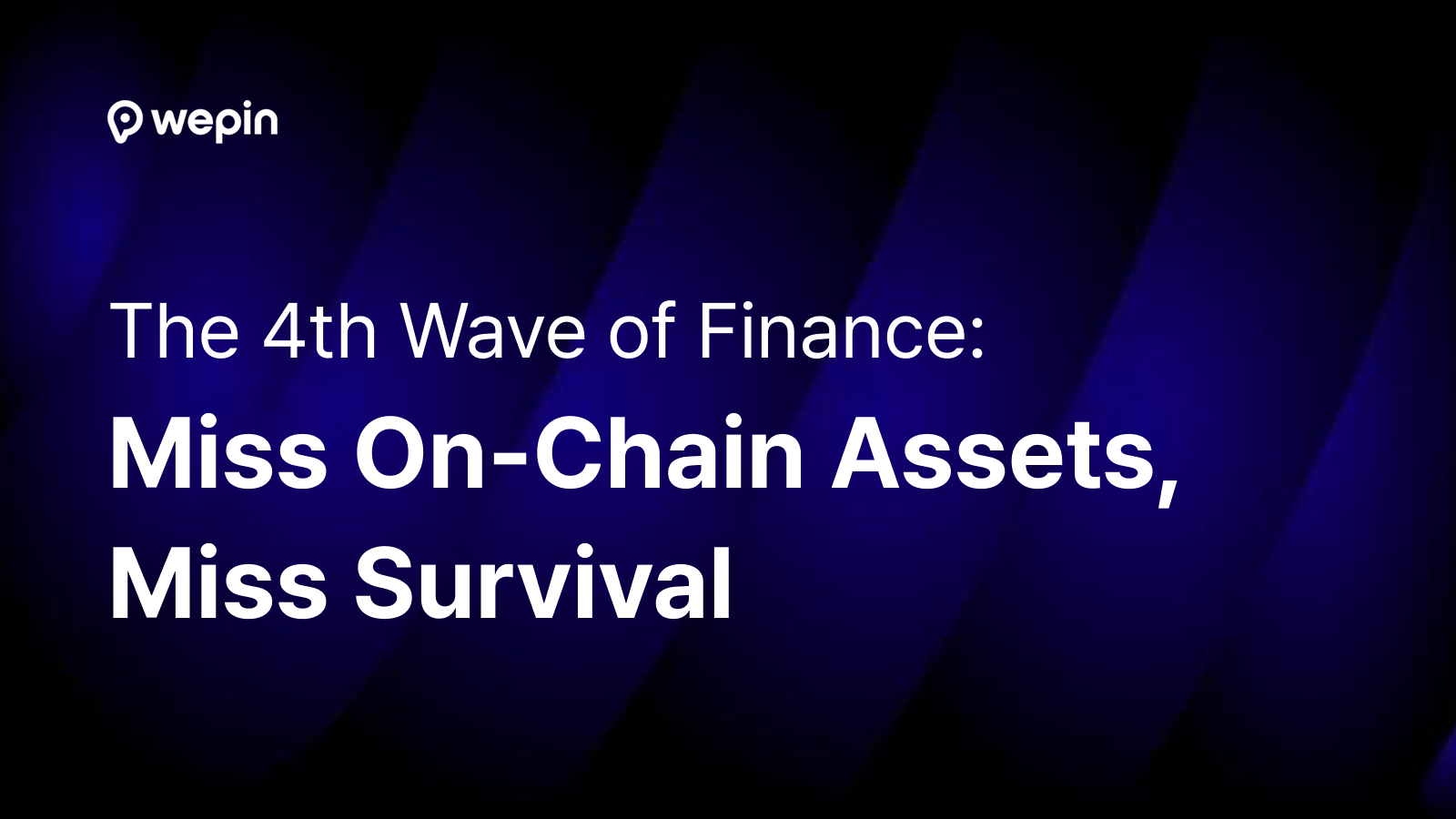Author: Jiyun Kyung, Business Development (https://www.linkedin.com/in/jiyunkyung/)
[TL;DR]
- As companies seek to incorporate blockchain technology and Web3 into their businesses, wallet solutions for safe and efficient management of digital assets are becoming increasingly important.
- Key wallet solutions include 'Custody' services that entrust a company's digital asset storage to specialized firms, and 'WaaS (Wallet as a Service)' that provides wallet solution packages to companies.
- Companies should select appropriate WaaS providers through a checklist including security, functionality, and service levels, with various customized use cases available by industry.
- Companies should lead Web3 transition and innovation with a strategy of focusing on their business while entrusting necessary wallet infrastructure to specialized firms.
1. What is an Enterprise Wallet? Enterprise Wallet Solutions
With the recent spread of blockchain technology, corporate interest in Web3 is also increasing. Companies are particularly focusing on the changes blockchain will bring in areas such as cryptocurrencies, various digital assets, and token economies. Accordingly, companies are exploring how to integrate blockchain technology and Web3 into their own businesses.
In this trend, the importance of wallet solutions that allow companies to safely and efficiently store and manage digital assets is being highlighted. Especially in a situation where blockchain developers are scarce, wallet solutions manufactured and supplied by external specialized companies are gaining attention.
Through wallet solutions, companies can provide new services linked to blockchain systems or issue and manage various new digital assets, including STOs, without separate development. They can also utilize blockchain and digital assets in internal processes in various ways such as employee compensation, customer rewards, and supply chain management.
2. Overview of Enterprise Wallet Solutions
Representative wallet solutions for enterprises include Custody services and Wallet as a Service (WaaS). Custody service is a method of entrusting the storage of a company's digital assets to a specialized firm. The firm safely stores the company's asset private keys and digital assets through advanced security infrastructure and sophisticated procedures.
WaaS is a service that provides companies with a wallet solution divided into backend and frontend in an integrated package form. Companies can operate their own branded wallet service based on the wallet infrastructure provided by the WaaS provider without separate development or construction.
2.1 What is a Custody Service?
Custody service is a specialized financial solution that provides safe storage and management of digital assets to institutions and companies. Companies entrust digital assets to custody firms in a concept similar to entrusting securities or cash to traditional financial institutions.
- Main Service Scope
- Digital asset private key management and distributed storage
- Enhanced security system including hardware security, multi-authentication, audit trail
- Digital asset management including deposits/withdrawals, rebalancing, tax reporting
- Audit and reporting system for regulatory/compliance adherence
The advantage of custody is that it can minimize security burden by entrusting asset storage to specialized firms. Also, customized services tailored to corporate needs are possible based on rich customer references and regulatory response know-how.
However, there are trust issues as it's a complete third-party entrustment method, and custody costs can be significant for large-scale companies. Also, companies' control over assets may be relatively low.
2.2 What is WaaS (Wallet as a Service)?
WaaS is a service that provides Web3 wallets to customers using SDKs or APIs provided by WaaS companies. It also provides blockchain wallet solutions in a white-label form.
WaaS companies separate the backend and frontend of the wallet, providing the backend from WaaS and allowing companies to directly customize the frontend or configure it with supported templates.
Through this, companies can quickly adopt professional wallet infrastructure and freely implement corporate branding and UI/UX. Most of the development and operation burden goes to the WaaS company, making it convenient and easy to proceed with Web3 business.
- Main Functions of WaaS
- Wallet infrastructure construction and continuous maintenance
- Support for corporate system integration through various SDKs, APIs
- Operational support such as wallet data analysis, security monitoring
- Cryptocurrency and token integration, compliance support
The advantage of WaaS is that it can utilize professional wallet platforms at a low cost early on. Also, it can flexibly respond to rapidly changing wallet technologies or UX changes such as account abstraction through WaaS company support.
However, there may be issues of excessive dependence on WaaS companies in the long term. Especially if using a WaaS company that is slow in technology development, unable to keep up with changes, or may have security issues, significant problems could occur later. Also, the increase in development and operation costs as customized requirements increase should be considered.
3. Comparison of Custody and WaaS
Both Custody and WaaS are services that allow companies to safely manage and utilize digital assets and cryptocurrencies. However, there are some important differences in service provision methods, operation forms, and advantages and disadvantages.
3.1 Service Concept
- Custody: A method of completely entrusting a company's cryptocurrency and digital asset storage to a specialized firm
- WaaS: A service providing companies with an integrated wallet solution package (backend + frontend)
3.2 Asset Storage and Control
- Custody: The custody firm is solely responsible for managing asset private keys and actual asset storage
- WaaS: Companies directly hold and control asset private keys, but WaaS firms support infrastructure operation
3.3 Security and Risk Management
- Custody: Enhanced asset security through specialized security infrastructure and sophisticated controls (hardware security modules, HSM, multi-authentication, CCSS, etc.)
- WaaS: Security depends on company capabilities, but latest security technologies can be applied through periodic updates
3.4 Implementation and Operation
- Custody: Incorporated into the service without separate implementation, with almost no operational burden
- WaaS: WaaS firms provide the backend, while companies customize the frontend or operate with provided templates
3.5 Regulatory and Policy Compliance
- Custody: Support policy compliance through specialized firms' regulatory response know-how and audit functions
- WaaS: Functions for policy compliance are provided, but companies need to establish their own policies
3.6 Cost Structure
- Custody: Operated on monthly deductions or asset value-based fees, with costs increasing for larger scales
- WaaS: Generally provided as monthly subscriptions, with low initial adoption costs but separate maintenance/upgrade and customization costs
3.7 Customized Services
- Custody: Customized services possible for each company within the firm's capabilities
- WaaS: High-level customization possible through frontend white-labeling
3.8 Scalability and Compatibility
- Custody: Support range for blockchain networks and digital assets may be limited
- WaaS: Various networks and assets can be linked through continuous updates
In summary, companies need to choose suitable wallet solutions based on their situation. The important point is that both solutions are complementary rather than substitutes, and both have the common feature of enhancing corporate digital asset security and utilization.
4. Checklist for Selecting a WaaS Provider
To adopt a wallet solution, companies need a systematic evaluation and selection process for WaaS providers. The following basic checklist can be used to evaluate and review WaaS providers:
Currently, WEPIN, a leading domestic WaaS platform, is being serviced by IoTrust, a blockchain wallet specialist company. WEPIN strives to meet the needs of corporate clients by adhering to the following checklist as much as possible.
4.1 Functional and Technical Requirements
- Types of public/private blockchain protocols and networks supported
- Support range for major cryptocurrencies, Non-EVM networks, and enterprise-issued networks
- Fulfillment of required functions such as token issuance, NFT creation/management, airdrops
- Provision of integration tools for corporate systems such as open APIs, mobile/web SDKs
- Real-time wallet data analysis, monitoring, and customized dashboard/reporting features
4.2 Security and Compliance
- Security infrastructure level including hardware security modules, HSM, secure multi-asset storage
- Security controls such as multi-factor authentication, account and IP whitelisting, suspicious transaction detection/blocking
- Data protection policies and technologies including data encryption and personal information de-identification
- Audit trail, transaction tracking, and compliance reporting functions for regulatory compliance
- Acquisition of major information security certifications such as CCSS, ISO27001, GDPR
4.3 Service Level and Support System
- Review of major client types and references including corporations and financial institutions
- Availability of 24/7 technical support and dedicated account managers
- Maintenance policies including periodic security patches, feature upgrades, backup and recovery
- Service quality guarantee level including Service Level Agreement (SLA), availability, and response time
- Establishment of Disaster Recovery (DR) and Business Continuity Plan (BCP)
- Review of technical architecture including performance, scalability, and stability
5. WaaS Use Cases
The application methods and cases of customized wallet solutions for enterprises will vary greatly depending on company characteristics and business models.
In the financial sector, existing financial institutions such as banks and securities firms can establish an integrated digital asset management system based on custody services. This allows them to safely incorporate virtual assets like cryptocurrencies into customer portfolios. They can also provide new digital asset financial services such as securities tokenization and carbon credit trading.
B2C companies can also utilize wallet solutions in various ways. E-commerce or retail companies can adopt WaaS linked to cryptocurrency payments and operate reward programs connected to points/mileage systems based on this.
Entertainment companies can issue NFT fan club memberships or apply NFTs to artist merchandise in conjunction with fan clubs. Wallets enable NFT issuance, distribution, and ownership management.
Game companies can implement GameFi business models by tokenizing in-game items or issuing game tokens managed through wallets. Using WaaS-based wallets, this can be easily implemented without complex backend construction.
Manufacturers can incorporate cryptocurrency wallets linked to IoT functions in their products using WaaS-based wallet infrastructure. This allows the application of blockchain technology to product authentication, component tracking, and after-sales management. Logistics and distribution companies can reduce transaction costs and increase process transparency and efficiency by introducing digital currencies and tokens throughout the supply chain using WaaS.
Thus, wallet solutions can be widely utilized regardless of industry or business model. Companies can now seek optimal wallet solutions that match their environment and needs, and lead digital transformation and innovation based on these solutions.
6. Conclusion
As blockchain and Web3 emerge as new trends, corporate blockchain adoption is becoming essential. Particularly with the surge in demand for various forms of digital assets, it's important for companies to secure appropriate wallet solutions.
Wallets will become gateways for companies to safely enter the digital and Web3 economy and conduct business, beyond simply being a means of value storage. Therefore, establishing an optimal wallet strategy suitable for the corporate environment is a crucial task.
Wallet solutions are expected to become more diverse and sophisticated in the future. In addition to custody and WaaS, new wallet models such as on-premises and hybrid cloud may emerge. This will require continuous technological innovation and strengthening of security capabilities.
However, it's not efficient for companies to do all of this in-house. Companies need a strategy of focusing on their business while entrusting necessary infrastructure to blockchain specialists. Ultimately, companies should secure top-level wallet solutions that can realize the innovative, transparent, and efficient value inherent in digital assets. Through this, companies can flexibly respond to rapidly changing business environments and seize opportunities for digital transformation.











